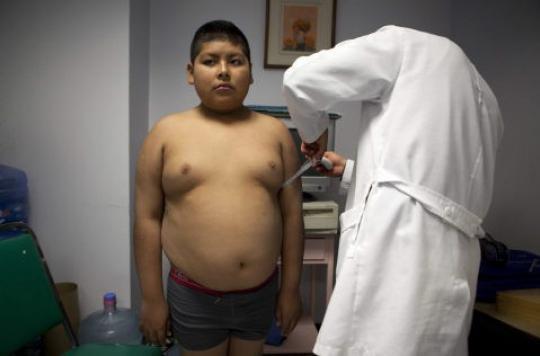A Swedish study has established a statistical link between obesity in adolescents and probable colorectal cancer after reaching the age of 50.

We already knew about the harmful short- and long-term effects of obesity in adolescence. This time, a Swedish study succeeded in making a link between being very overweight during this period and an increased possibility of colorectal cancer around the age of 50. According to the results published in review Gut, this phenomenon may also be visible in young people whose sedimentation rate is higher.
Obese adolescents at greater risk
The investigators, in fact, studied the case of 240,000 Swedes between the ages of 16 and 20, when they were called up for military service between 1969 and 1976. Of these, 5% were overweight and about 1% were overweight. obese.
The results are unequivocal. Over the next 35 years, 885 of today’s conscripts aged 50 and over were affected by colorectal cancer (501 of the colon and 284 of the rectum). Among them, those who were obese or overweight in adolescence are 2.4 times more affected by this disease than others.
This phenomenon is also visible in young recruits whose speed of sedimentation (a blood test that can look for an inflammatory or infectious process) is higher than the others.
However, the researchers say more research is needed to find out the reasons for this upsurge in overweight patients. While statistical evidence can already be put forward, further work will be needed to understand the mechanisms between obesity, cancer and inflammation.
25% of obese are minors
Previously, a lot of work had looked at adolescent obesity and ways to combat it. Thus, an American study had recently affirmed that a meal rich in protein or in soybeans consumed in the afternoon would allow an improvement in the quality of the diet as well as a better control of their attraction to the junk food. Earlier, another British study claimed that eating meals with the family was also a factor in reducing the risk of obesity for adolescents.
More generally, nearly 2 billion people are overweight on the planet according to the figures put forward by the WHO (World Health Organization). Among them, nearly 25% are teenagers, mostly living in developed countries.
.















